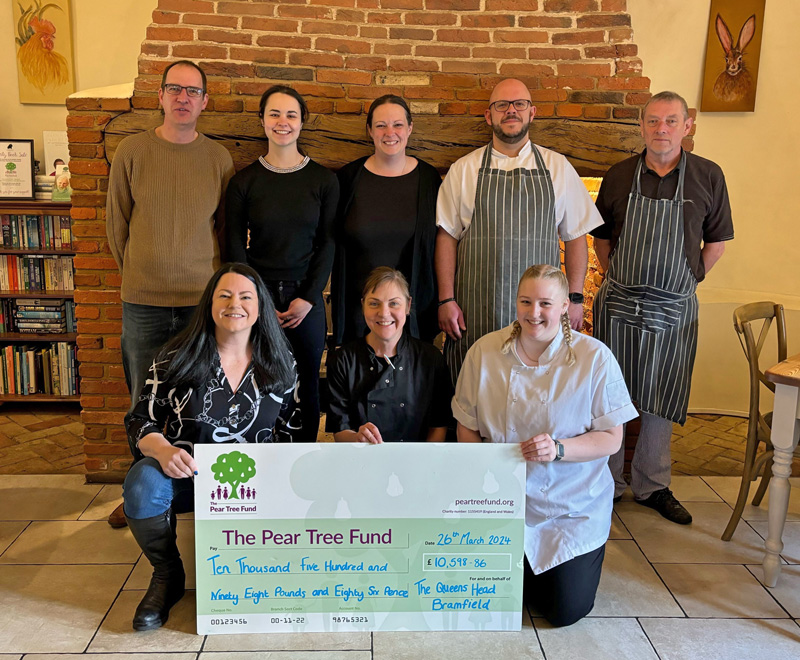
Don’t wait, it could be cancer – what the residents of East Anglia know about their risks of developing cancer.
1 in 3 people in Britain are likely to develop cancer in their lifetime, and early reporting of cancer symptoms is vital for successful treatment. Early diagnosis makes it much more likely an individual will survive.
With the intention of diagnosing and treating cancers in the UK more much earlier as in other European countries, Anglia Cancer Network commissioned a new survey which has revealed low awareness of cancer symptoms amongst people in the region. A total of 3799 interviews were carried out in the weeks leading up to Christmas 2009 , out of a total population of 2.7 million living in the Anglia Cancer Network area which includes Suffolk, Cambridgeshire, Norfolk, Great Yarmouth and Waveney, Peterborough and North Bedfordshire.
The survey is part of a wider national awareness and early diagnosis campaign being undertaken by Anglia Cancer Network which is also co-ordinating an audit of new cancer diagnosis identified in primary care and looking at the stage at which patients are identified as having cancer.
The Anglia Cancer Network has commissioned reports for all 6 PCTs in the area to help plan local campaigns for improving cancer awareness and identify those communities within the PCTs where targeted campaigns are most needed and likely to have the greatest impact.
The survey found that the most commonly recognised symptom of cancer was a lump (65%). In addition, 72% of females recognised a lump as a cancer symptom, but only 58% of men. However less than one in three people identified other cancer symptoms including bleeding (24%), mole (15%) and difficulty swallowing (2%).
Respondents were asked how long they would wait before seeking guidance from a doctor about cancer symptoms. 87% indicated that they would approach their GP within a week for unexplained bleeding but only 44% would approach their GP within a week for a cough or hoarseness and 38% for unexplained weight loss.
Only one in four people in our region said it might be difficult getting an early appointment with a GP, compared to 4 out of ten people nationally. Nearly one in four locally were worried about wasting the doctor’s time.
Both local and national surveys suggest that public knowledge of cancer symptoms is relatively low and that further campaigning work needs to be done to improve peoples’ awareness of symptoms of potential cancer. If people recognize the symptoms they are more likely to seek early help.
Dr Gina Radford Public Health Consultant and Adviser to the Anglia Cancer Network said : “We welcome the findings of the Anglia Cancer Network survey. It is the first of its kind in Anglia. The survey has demonstrated that while people are aware of the significance of tumours and swellings, awareness was relatively low for some of the other symptoms associated with cancer. This gives us an opportunity to look at raising awareness of the symptoms of cancer – as early diagnosis and treatment makes a positive outcome much more likely for people suffering from cancer.”
Dr. Rory Harvey, Anglia Cancer Network Medical Director and Consultant Gastro-enterologist at Bedford Hospital said; “This is an important study which will help us target our cancer healthcare to patients most at risk of developing cancer”
Carole Taylor Brown Chief Executive of NHS Suffolk and Chair of the Anglia Cancer Network Board said: “Anglia Cancer Network have developed a strategy for improving survival rates for people who develop cancer. This has involved the systematic implementation of evidence based good practice across the region including plans for improving access to radiotherapy and improvements in the organisation of chemotherapy. The Network are now turning their attention to raising awareness and encouraging the public to be aware of the risks and seek help earlier.”
The Anglia Cancer Network Strategy; Moving Forward On Cancer Services and the results of the Network and PCT surveys can all be accessed on the Anglia Cancer Network website www.angliacancernetwork.nhs.uk
1. A total of 3779 interviews were carried out in the areas of the six primary care trust areas covered by NHS Bedfordshire, NHS Peterborough, NHS Suffolk, NHS Great Yarmouth and Waveney, NHS Norfolk and NHS Cambridgeshire. The survey was developed by Cancer research UK.
2. For any further information please contact Dr Gina Radford, via the Network office on 01638 608223
3. The survey found that there were a number of reasons why people delay seeking help. Some avoid visiting their GP altogether and tend to be single males living in urban areas. Some respondents had low symptom awareness usually younger age groups.
6% of the sample reported emotional barriers preventing them visiting their GPs because they were embarrassed or too scared. A significant proportion of this group were younger females particularly students.
Respondents were also asked about screening with local respondents less aware of breast and cervical cancer screening with only 73% of local people aware of the breast screening programme compared with 88% nationally and 71% aware of the cervical cancer screening programme compared with 83% nationally. Only 35% were aware of the newer bowel cancer screening programme for 60-70 year olds.
4. The findings of the survey are due to be discussed by the Board of the Anglia Cancer Network on Wednesday 3rd February 2010. Over the next few months Anglia Cancer Network will be working with PCTs in the area on campaigns which will raise awareness of both symptoms, warning signs and lifestyle risk factors, communications to raise awareness of cancer screening programmes and deciding how to target groups where there was least awareness – males, young people, ethnic minority groups and people living in some of the regions more deprived areas. The Network will also be looking at providing reassurance to those groups who were embarrassed or afraid to visit their GPs.
5. The survey has been developed by Cancer Research UK to help identify how public knowledge of cancer symptoms and risks change over time helping to monitor the impact of cancer awareness campaigns. The tool is being used by Cancer Networks and Primary Care Trusts all over the country to help plan future cancer awareness campaigns.









